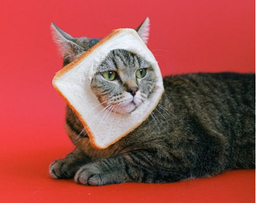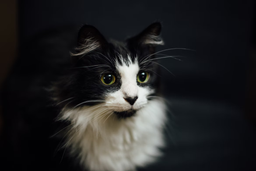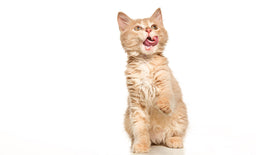Poorly kitten? Upset stomach problems? Get facts and advice here!
Being a parent to a kitten is both a joy and a huge responsibility.
You are responsible for all aspects of your kitten’s growth into adulthood—from choosing the right food to making your house a safe space for the little one to explore and play.
Tummy upsets are part of growing up, whether they are food-related or caused by external factors. However much you accept this, it is still traumatic to see your kitten suffering.
What should you do when you’re having tummy trouble with your kitten? Upset stomach issues aren’t to be taken lightly, so read on for the best advice on getting your kitten healthy again and get all the kitten facts you need!

From birth up to four months is the critical time for kittens.
Source: Pixabay
When are kittens most at risk of tummy trouble?
All kinds of malaises can cause a kitten to suffer a bout of tummy trouble, but there are certain growth stages during which kittens are most susceptible to illness, as follows:
- The “immunity gap”
- The rapid growth stage
The “immunity gap”
Up to 4 or 5 weeks old, kittens will get the majority of their nourishment from their mother’s milk, only beginning to eat solid food after that point.
After weaning, there may be a period of a couple of weeks during which the queen’s immune system isn’t enough to safeguard the kitten from infection, while the kitten’s own immune response is not yet mature enough.
This is the so-called “immunity gap,” during which you should pay particular attention to your kitten’s wellbeing.
The rapid growth stage
Between 2 and 4 months of age, kittens’ bodies grow at a phenomenal rate as they prepare for adulthood.
This means kittens need huge amounts of calories and protein to fuel this growth. The more kittens eat, the more likely they are to suffer tummy trouble unless you are scrupulous about the food you offer.
What causes kitten stomach problems?
The most common causes of stomach upsets in kittens are:
- Food contamination
- Overeating
- Eating the wrong food
- Trying something toxic
Food contamination
If you are an advocate of raw or homemade food, you will know how hygienically you have to prepare everything as well as make sure that every meal is fresh.
Dealing with raw meat—particularly chicken—can be fraught with the danger of contamination. Other types of cat food—such as wet, semi-moist, and even dry kibbles—can go off or attract unwelcome insect life if left out too long, though.
Spoilt or infested food is guaranteed to cause tummy trouble in a kitten.
Overeating
With all the growing a kitten needs to do, you may think they would need to eat constantly.
Kittens’ digestive systems are only fully developed after around four months, so they need to be treated with care.
With a stomach the size of a walnut, a kitten should consume regular, energy-dense meals but should have time to digest the food.
Constant eating can overburden a kitten’s delicate digestive tract, leading to:
- Acute diarrhoea
- Chronic irritable bowel syndrome (IBS)
- Nausea and vomiting, even before food can be digested
Eating the wrong food
If your kitten is constantly eating, this could also be a sign that the food you’re serving doesn’t contain everything needed for healthy growth.
Uninterrupted eating combined with lower-quality food is a perfect storm for gastrointestinal problems.
The higher the quality of food you serve, the greater your chances of keeping your kitten’s digestion stable.
Trying something toxic
Kittens are massively curious and can’t yet differentiate between good food and forbidden fruit.
You should exercise scrupulous care in making sure your kitten can’t inadvertently eat:
- Chocolate
- Allium vegetables, such as onions, garlic, or chives
- Bread or yeast-based products
- Citrus fruits
- Grapes or raisins
- Yoghurt, cheese, or dairy products, even including lactose-free milk
- Alcohol or caffeine
If any of these are ingested, an upset tummy will be the instant result—once you have isolated the cause of the illness, you should get your kitten to the vet as soon as possible.

Kittens will try anything once!
Source: Pixabay
How to treat a kitten with upset stomach issues
Most cases of diarrhoea or stomach upsets clear up on their own within a day.
As soon as you notice that your kitten is struggling, though, you should:
- Identify the potential cause of the upset
- Monitor your kitten closely
- Keep the kitten hydrated and fed
Identify the cause of the upset
Finding out what has made your kitten sick is half the battle.
Once you have identified the irritant, you need to make sure your kitten can’t get at it again.
The most confusing of gastrointestinal issues in kittens are those that seemingly have no cause—the food hasn’t changed, your kitten hasn’t eaten anything poisonous, and no other external factors seem to be present.
In such cases, it is worthwhile checking the food you are serving.
If it is a lower-quality food, you may see that the ingredients list contains phrases such as:
- Meat and animal derivatives
- Meat meal
These are catch-all phrases that don’t really tell you what has gone into the food. Manufacturers use these ingredients to give themselves leeway to vary the formulation according to the availability and price of different meats.
If your kitten suddenly develops a tummy upset from lower-quality food that has been problem-free up to that point, the manufacturer may have altered the formulation to produce the latest batch.
You can check the batch numbers on the tins or pouches, but your best course of action is to switch to food where the ingredients are clearly defined—these formulations can be trusted to remain constant.
Monitor your kitten closely
If your kitten’s tummy upset doesn’t clear up within 24 hours, you need to act quickly.
After this time, kittens will start to mobilise fat reserves to provide energy. This can lead to the liver becoming flooded with fat cells, which it has to store around its surface area.
Such fatty build-ups around the liver—known as hepatic lipidosis—can seriously harm your kitten’s ability to process food.
Keep the kitten hydrated and fed
Diarrhoea and vomiting cause severe dehydration in cats of all ages.
Cats also have a relatively weak thirst drive, meaning they will often not drink enough to be fully healthy—this can be a major issue with dry food for cats.
A plentiful supply of water is crucial to helping your kitten recover from bouts of diarrhoea or sickness.
There is also a persistent myth that you should not feed cats that are sick. This is untrue as long as the food you offer is high-quality and delivers nutrients and energy in small, easily-digestible portions.
Your best bet is to cover all your bases by offering high-quality wet food, guaranteeing nutritional value and enough moisture to keep your kitten well hydrated during recovery.
How to prevent kitten upset tummy trauma
You may not get away with an entirely problem-free kittenhood, but ensuring your kitten gets the best nutrition possible will certainly help.
Cats are obligate carnivores, needing meat to give them the nutrients required for health.
Kittens also need to grow incredibly quickly—they will typically double their weight every couple of weeks for the first six months of their life.
A kitten’s daily calorie needs are approximately as follows:
|
Kitten weight |
Daily calorie requirement |
|
100 g |
31 kcal |
|
200 g |
52 kcal |
|
300 g |
88 kcal |
|
400 g |
104 kcal |
|
900 g |
162 kcal |
|
1.4 kg |
225 kcal |
|
1.8 kg |
272 kcal |
|
2.3 kg |
327 kcal |
|
2.7 kg |
369 kcal |
|
3.2 kg |
419 kcal |
|
3.6 kg |
457 kcal |
|
4.1 kg |
504 kcal |
|
4.5 kg |
541 kcal |
To deliver these calories healthily and with the least amount of strain on the kitten’s digestive system, the food you choose should mirror their natural diet and be made up primarily of:
- Animal protein
- Animal fat
- The right amount of vitamins and minerals
Carbs and grains or cereals shouldn’t be present in your kitten’s food—they only deliver unhealthy calories and contribute nothing to your kitten’s digestive health.
All the vitamins and minerals your kitten needs will be contained in food with the right proportions of animal protein, fat, and carbs, namely:
|
Nutrient type |
Ideal percentage |
|
Animal protein |
Over 50% |
|
Fat |
Up to 20% |
|
Carbs/fibre |
Maximum 3% |
The importance of animal protein in your feline’s diet
Cats need the amino acids—such as taurine—found in meat to fuel:
- Muscle build
- Skin and coat maintenance
- Organ development and function
Bearing in mind the size of kittens’ stomachs, they need the required amino acids to be delivered in as compact a form as possible.
This means that the biological value (BV) of the protein you choose—or how efficiently it can be metabolised—is an important factor to consider. The BVs of the most common protein sources in cat food are:
|
Protein type |
BV |
|
Animal protein, such as: |
88%–98% |
|
Vegetable protein, including: |
45%–68% |
Choosing a kitten food where the main ingredient has a BV of 90% or more guarantees high-quality protein being delivered to your kitten in a small, manageable portion.

Only the best protein will keep your kitten growing healthily.
Image (c) Untamed
Animal fat makes the food healthy and tasty!
As well as being an excellent secondary energy source, animal fat gives your kitten:
- Essential fatty acids for cell structural integrity
- A great taste, meaning your kitten will be happy to eat the food
Animal fat, such as that contained in cat jelly or cat gravy, is an excellent ingredient to make sure your kitten gets the immune and cell support needed while going wild about the food’s taste.
Avoid an upset kitten with the best food from Untamed
The best route to digestive happiness for your kitten is high-quality wet food from Untamed!
With our vet-formulated products, every tin of Untamed gives kittens exactly the nutrition they need in a form they go mad for. Using only the best ingredients, all our recipes—whether you opt for Chocka Chicken, Tuck-In Tuna, Full-On Fishy, or any of our other variants—are designed to keep your kitten growing optimally with no digestive issues to worry about.
Each tin of Untamed is guaranteed to contain:
- No known allergens
- No artificial additives
- No flavour enhancers
Your kitten gets twice the amount of animal protein than you find in most commercial cat foods, meaning that you will see:
- Steady, healthy growth up to adulthood
- Few, if any, digestive hiccups
- Energy and vitality throughout their growth phases
Untamed isn’t just good for kittens, though. You can feed Untamed to cats in any life stage, from kitten to senior—some of the long-term effects of Untamed you may notice are:
- Fewer problems with shedding and hairballs
- Lower frequency of urinary tract infections (UTIs), such as cystitis or bladder stones
- Easier weight management, with adults staying trim and seniors retaining weight
Best of all, with so much goodness in each tin, even the fussiest of cats, sensitive felines, and those that normally hate wet food should tuck in with gusto.
Want your kitten to grow as healthily and happily as possible? Try Untamed today!

Everything your kitten could ever wish for!
Image (c) Untamed
Learn about the Untamed effect!
Lots of happy kitten parents tell us that you should notice the following changes after switching your little feline companion to our monthly cat food subscription:
|
Timeline |
What Untamed can do |
|
Within a week |
|
|
After 2 months |
|
|
Within 4 months |
|
|
Through to adulthood and beyond |
|
Getting Untamed for your kitten is easy!
Getting our healthy cat food delivered to your door is quick and easy—all you have to do is:
- Tell us all about your kitten
- Select the meal plan
- Order your first trial pack online
Once your trial pack arrives, you can start exploring which products your kitten goes most wild for—our job will be to keep you stocked up, so you never run out.

![Best food for Ragdoll cats in the UK [Broken Down]](http://untamed.com/cdn/shop/articles/featured_best_food_for_ragdoll_cats_uk.jpg?v=1646818249&width=256)

